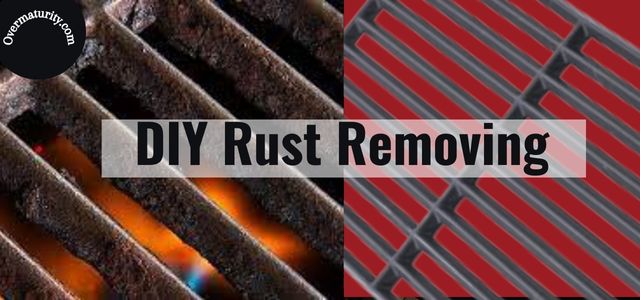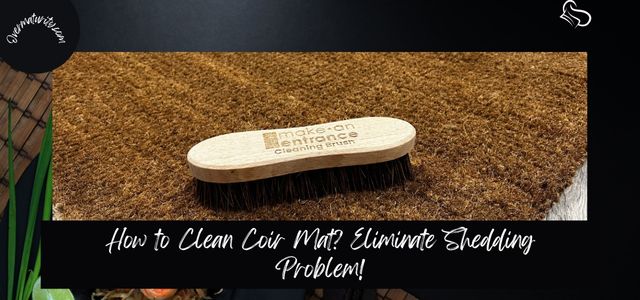Professional chefs have been using cast iron grill grates for years. It offers incredible benefits over other cookware types. The rugged metal is robust and is one of the most acceptable reasons to choose a grill made of cast iron.
The cast iron grill can endure a long life if properly cared for. This includes frequent oiling, cleaning, and maintenance. The grill or grates made of cast iron face only rust issues, so most newbies are asking about how to restore cast iron grill grates.
How To Restore Cast Iron Grill Grates
Cast iron grills are pretty sturdy and robust. The major problem with cast iron is preventing it from rusting instead of scratches. The most straightforward approach to maintaining your grates is to clean them right after use.
Burn off the food struck to the grates and scrub it with a wire brush while the grates are still heated. Wash the grates with a mild detergent agent and dry them with a paper towel. Apply a thin layer of vegetable oil to prevent further rust development.
1. Removal of Debris
Use a metal scraper to eliminate foggy food, rust, mildew, and other dirt. Scrub as much as possible and, if required, use a metal scraper to chip significant bits.
2. The Rust Removal
Take a paper towel and add vegetable oil to it. Massage the grates with oil, and wipe the grills until they get clean. Remove any residual rust spots with white-distilled vinegar. The rust doesn’t get off with the oil until the vinegar is applied.
3. Season the Grill Grates
No matter how you clean your cast iron grill, you always have to season it before you put it off. Seasoning applies fat or oil cooked at such high temperatures in the cast iron pores to generate a strong coating resisting corrosion and creating an unbootable finality over time. Many of the newbies don’t know about seasoning or the importance of seasoning.
How to Remove Rust from Cast Iron Grill Grates?
Use a wire brush or nylon sponge if food particles are trapped on the grates, and then wipe it again to verify that it is clean and food-free. If the food prepared is too hard to be readily scrubbed off by combining clover salt or baking soda with water, produce a cleaning paste. Apply a nylon sponge to the paste and scrape up the area until the stubborn particles leave the grates. If the rust makes pores then it’s better to go for new grates.
Materials Used for Rust Removing
- Water
- Vinegar
- Paper Towel
- Mild Detergent
- Clover Salt or Baking Soda
- Wire Brush or Nylon Sponge
1. Vinegar
Fill the rusty surface and let it sit for a few minutes with ordinary white vinegar. Use your wire brush or nylon sponge over the afflicted area once the vinegar begins to dissolve the rust. Repeat until the rust has passed away. You may only soak the grill in vinegar if your sink is large enough to lay your grills flat for any roast.
2. Soda Paste
You may use a thick paste made with baking soda and water as an alternative to vinegar to remove the rust off the cast iron grill and other metal surfaces. Use the paste on the rust and let it sit for several hours. Dispose of the paste with an abrasive surface and repeat as needed.
3. Salt Paste
To eliminate rust from your cast iron grill, prepare a thick paste of kosher salt and water if you need something more abrasive than baking soda or vinegar. Use a wire brush on the rusty spot, and then scrape the rust. As needed, repeat.
In case of tough rust, you may have to start cleaning with a salt paste but may discover that you may switch to a less abrasive baker soda paste once the initial few rust layers have been removed.
4. Soapy Water
Bring your grill grates to the sink, take a stiff brush, and start removing the rust by applying warm soapy water. This takes some time and restores your grate to bare metal. When the rust is removed wash it with clean water and dry them with a paper towel.
Tips to Keep Your Grill Perfectly Functioning
There are a few suggestions to consider while maintaining and preventing rust on your grill.
- Replace your brush every year, and check for the loose bristles of the brush before using them.
- Pay attention to marinades. The outcome is sticky, burned sugar cackled on the grills when you apply large quantities of liquid or barbecue sauce when grilling too early.
- It is typical if your food stays with the new grates throughout your first few usages. The non-adhesive layer will grow on the grills, and the food will stick less as you clean and season.
- You can use a paper towel or a natural bristle paintbrush when using oil for seasoning. When applied to heating grates, do not use any nylon or synthetic brush to apply the oil. They will melt.
- Keep your grill covered while not in use so that moisture does not start to rust and creep inside.
Conclusion
Cleaning your grates made of cast iron is necessary for appropriate grill treatment. It is hard to achieve 100% rust-proof cast iron, but techniques can minimize the rust on cast iron. It won’t be challenging to clean and rust-free cast iron grill for years to come in this straightforward process. It is essential to preserve the high performance of your cast iron cookware. Proper cleaning helps increase the life span of your grill.



